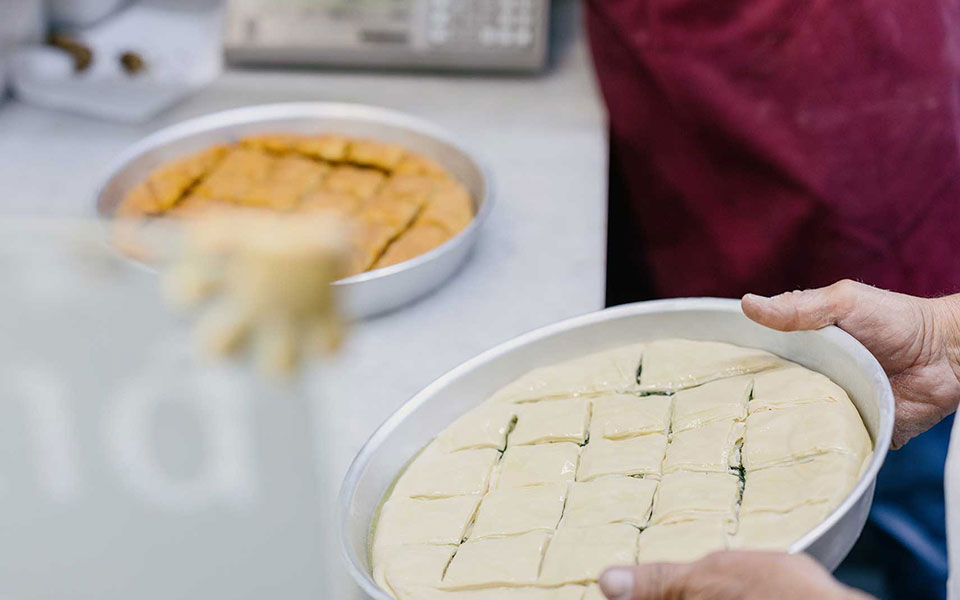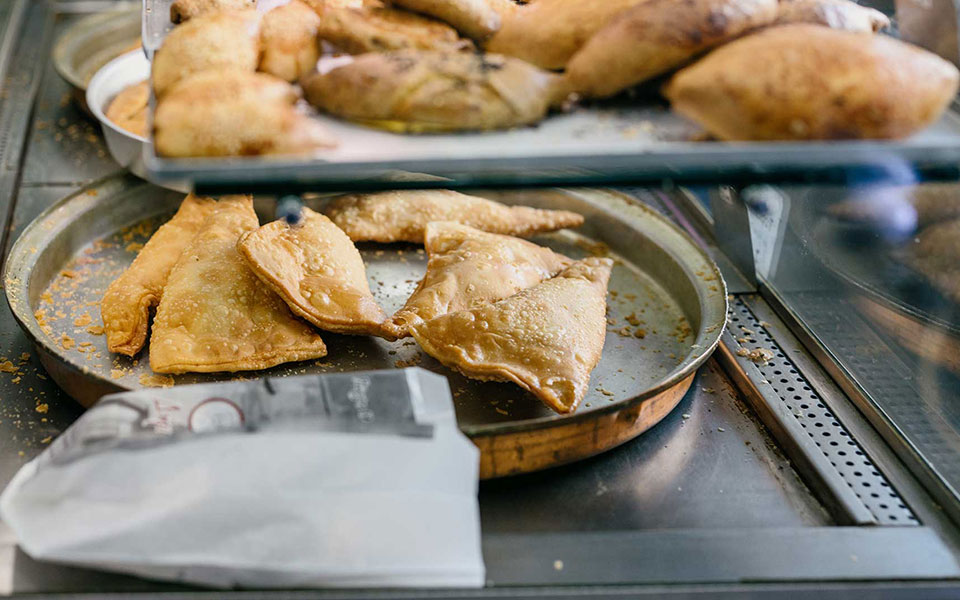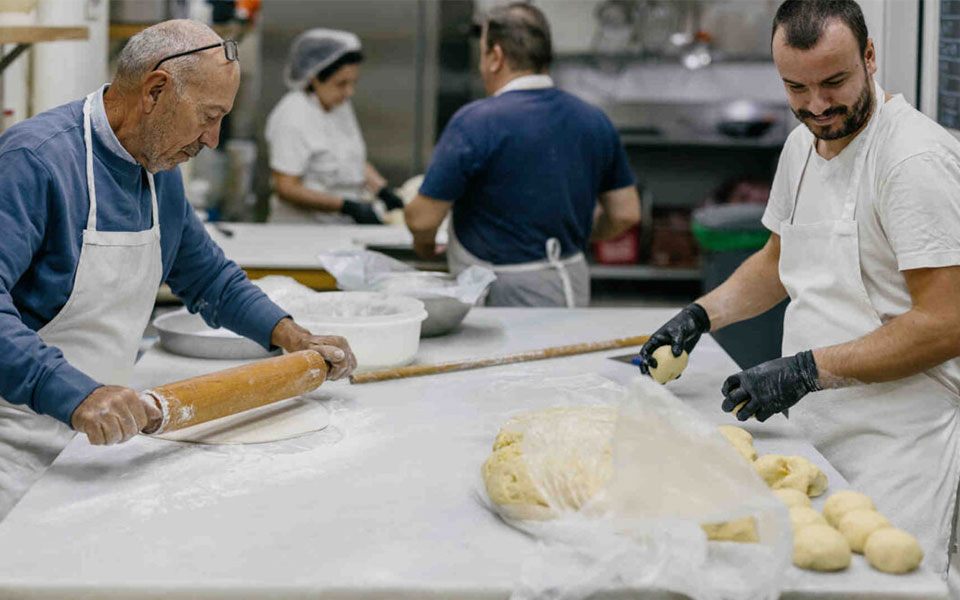Building on the traditional, family recipes brought over from Asia Minor, the “Dimitra Gounaridis” filo pastry and pie workshop has managed to become a hotspot in the northern Athenian neighborhood of Nea Ionia, maintaining its regular customers and only ever using quality ingredients. In particular, they are renowned for their crunchy, crispy pies that are instantly recognizable, as we have tried them on numerous ocassions, even in blind tastings!
The elaborate matsoverga filo (rolled with a long and slender rolling pin), as fine and delicate as sheets of silk, as well as kourou pastry, kataifi pastry and pizza dough, not to mention the puff pastry made with traditional butter from Brittany, are used and warmly recommended by many distinguished chefs, including our very own Nena Ismyrnoglou.

© Angelos Giotopoulos
The history of this family business officially begins in 1945 with Tasos Gounaridis, a refugee from Sparta, Asia Minor. But the story starts much earlier, in 1922, when Tasos, then only 8 years old, together with his mother Evlambia and two sisters, left Sparta for Attalia, and came to Piraeus by boat, carrying just their clothes, some religious icons, and a small pouch of jewelry. The tenacious and enterprising young boy began selling koulouria (Greek sesame seed buns) in Nea Ionia to make ends meet, and later got a job at the historic Tsitas pastry shop.
He was very capable and did well for himself. In time, he opened a rudimentary workshop in the basement of their home, where he struggled by with a few okkas (Ottoman mass measurement) of flour. His wife Dimitra was his support system, as she learned the traditional recipes from her mother-in-law and then perfected the pies, also making exquisite kourkoubinia (sweet filo pastry bites) and touloumbakia (small fried cakes with syrup).
Tasos, by then a master filo pastry maker, made the matsoverga (Beirut-style) filo pastry that became known throughout Greece. They sent orders to Ioannina, Corfu, Patras, and the best pastry shops in Attica, including Rossikon and Asimakopoulos.

© Angelos Giotopoulos
Their children, Giorgos, Thanasis, and Damianos, grew up in the shop that never closed, made kataifi pastry during school recess and, when the time came, also picked up their rolling pins. With his wife Mata, Giorgos continued the family business and, in recent years, their son and third generation pastry maker, Ilias Gounaridis, has taken over.
Faithful to the basic value of selecting exceptional ingredients, Giorgos and Ilias prepare traditional isli (a syrupy dessert from Asia Minor) intricately scored with tweezers by hand, tsoureki (Greek Easter bread) with mastic, and amazing cookies from Smyrna made with pure orange juice and orange pulp.
While I was there, I counted five batches of their famous triangular pies being prepared and subsequently disappearing like hot cakes. Pies with pastirma, mincemeat, cheese, mushrooms, light and not oily, boasting crispy pastry and filled with select ingredients such as exceptional virgin olive oil, kasseri cheese and feta. “Ilia’s fillings are much better than mine,” his father says with pride. Numerous trays of su borei (made with sheets of pastry lightly boiled in water), Kaisaria pies and wonderful syrupy desserts such as saragli (baklava rolls) sell out every day, as they can be purchased ready to eat or to be baked by customers at home.
This article was previously published in Greek at gastronomos.gr.
Dimitra Gounaridi’s Pies were awarded at the Gastronomos magazine’s 15th Quality Awards in December 2022 – an evening in honor of the culinary heritage of Asia Minor, and the producers and businesses run by the children and grandchildren of Asia Minor refugees.












